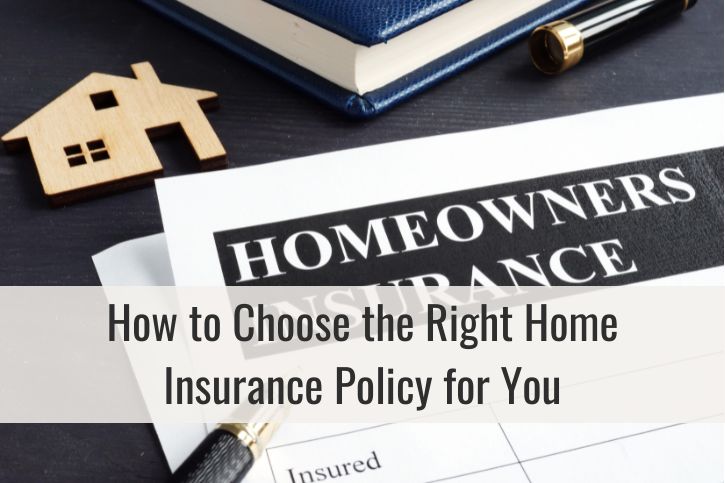Buying a home is a major decision, and protecting it with the right homeowners insurance is just as important. If you’re in Austin or the surrounding areas, how to choose the right home insurance policy for you becomes more than a to-do item—it’s a critical decision that deserves strategy, timing, and expert guidance. And yes, the Termination Option period (if you’ve secured one) is the ideal window to get this squared away.
The combination of market risks, property specifics, and local conditions makes every insurance need unique. At Uncommon Realty, Robbie English—Broker, REALTOR, national real estate speaker, and instructor—guides clients through this exact decision every day. His decades of experience are your advantage. He doesn’t just sell homes. He equips you with tools, insight, and strategic advice to help you secure the best protection possible, every step of the way.
Let’s walk through exactly what you should know, ask, and do when it comes to picking the homeowners insurance that truly fits your needs—not someone else’s checklist.

TLDR: How to Choose the Right Home Insurance Policy for You
- Start evaluating your homeowners insurance options during your Termination Option period—it’s the smart time to make decisions.
- Choose coverage that fits your specific property, lifestyle, and risk exposure (not all homes or neighborhoods are alike).
- Dig into policy details—don’t just shop by price—and understand what each insurer offers, including their service quality.
- Customize your policy with add-ons that make sense, and ask about discounts that could save you money.
- Work with Robbie English and his team at Uncommon Realty to navigate this process like a pro—he brings decades of insight and strategic real estate mastery to your side.
Know What You’re Really Insuring
Your home is more than wood, brick, or foundation. It’s your financial commitment, your legal responsibility, and your physical shelter. That’s why homeowners insurance needs to reflect more than just market value. It has to fit the structure, the contents, and even the potential liabilities.
First things first—what exactly do you need covered?
You need protection for your structure. That includes the actual dwelling—walls, roof, built-ins—against things like fire, wind, and vandalism. But don’t stop there.
You also need to consider your personal belongings. From electronics to furnishings to art or collectibles, your coverage should match the value of what’s inside. Not everything gets automatically covered at full value, so this is where a deep dive with your insurance rep matters.
Then there’s liability protection. If someone is injured on your property, this portion of the policy steps in. If you host guests, have a pool, or even own a dog, your potential exposure can vary. Choose coverage that matches your lifestyle and risk profile, not just the house.
And finally, what happens if you can’t live in your home because of damage? You’ll want coverage for temporary housing, meals, and other essentials. It’s called “loss of use” coverage, and it often gets overlooked—until it’s needed.
Take a Hard Look at Local Risks
Austin is a diverse city. Different neighborhoods have different topography, weather patterns, crime rates, and fire risks. What you’ll need from a homeowners insurance policy on the east side might look different than what’s necessary for a Hill Country property or a central condo.
Let’s break this down.
Flooding: While not all areas of Austin are flood-prone, many are. And here’s the kicker—standard home insurance rarely includes flood coverage. If your home is even remotely near a flood zone or low-lying area, it’s time to look at supplemental policies.
Severe weather: From hail storms to unexpected freezes (remember 2021?), Austin’s climate can throw curveballs. Ask your insurer what kinds of damage are and are not included in your policy.
Wildfire potential: For homes on the edges of the city or near brush-heavy lots, this is a real concern. Be sure wildfire coverage is addressed explicitly in your policy.
Crime: While Austin is generally considered safe, some pockets experience higher property crime rates than others. That can impact both your risk and your premium. Discuss this with both your REALTOR and insurer.
It’s not about fear—it’s about being fully prepared. Knowing your area helps you select the right policy for the right reasons.
Avoid the Temptation to Buy on Price Alone
We’ve all seen it: choose between the $895/year policy or the $1,110/year one and just go with the cheaper option. But here’s the truth—cheaper isn’t always smarter.
Let’s talk deductibles. That’s your out-of-pocket cost before your insurance kicks in. A lower premium often means a higher deductible. If your deductible is too steep, it might actually discourage you from filing a claim at all.
Then there’s replacement cost vs. actual cash value. Many budget policies only pay out for the depreciated value of your belongings. So if your five-year-old TV gets destroyed, the check won’t buy you a new one. The better choice? Replacement cost coverage. It costs more up front, but it pays off when things go wrong.
Every policy comes with fine print. And not all providers handle claims the same way. That’s where working with someone like Robbie English matters. He and his team understand that buying a home isn’t just about closing—it’s about protecting that investment intelligently, long after the ink is dry.
Think Beyond the Basics—Your Lifestyle Matters
A good homeowners insurance policy is shaped by the way you live. Robbie’s approach to real estate goes well beyond location or square footage. He dives deep into how you’ll use the property, because that informs what kind of protection you’ll need.
Work from home? Ask about add-ons for business equipment or liability related to in-home clients.
Own luxury items? Coverage caps on jewelry, art, or collectibles might not come close to your needs unless you add endorsements.
Have smart home tech or a security system? Not only can this lower your premium, but it also shapes what kind of claims you might file in the future.
Renting out part of your property, even short-term? Don’t assume standard homeowners insurance covers this—many policies exclude rental activity. There are smart policy extensions for that, but you need to ask for them.
Again, this is where real estate strategy meets practical protection. Robbie and his team can flag these needs even before they become obvious—and point you toward questions to ask your insurer that others won’t.
Choose Your Insurance Company Like You Choose Your Agent
Let’s be real—price and policy type matter. But the insurance company itself can make or break your experience when it counts the most: claim time.
Here’s what to look for:
Are they known for honoring claims quickly and fairly? If not, move on. Your insurer should be a partner, not an obstacle.
Can you reach them when you need to? Emergencies don’t wait for business hours.
Are their agents helpful, or just order-takers? You want a team that educates you, not just processes paperwork.
Robbie English doesn’t just teach other agents how to master the craft of real estate—he lives it every day. That includes helping his clients work with reputable, strategic insurance partners. Over the years, he’s developed insight into which insurers truly show up when it matters most. You’ll get those insights when you work with him.
Timing Isn’t Just Smart—It’s Strategic
You should be reviewing your homeowners insurance options early in the process—ideally during your Termination Option period. Why? Because if anything about the coverage doesn’t work, you can make adjustments before the sale becomes final.
Many buyers leave insurance decisions until the last minute, which is risky. You want time to compare policies, ask questions, and tweak things based on your lender’s requirements or inspection findings.
Robbie’s clients don’t get surprised. They get prepared.
Reassess Regularly—Yes, Even After You Buy
Too many people treat their insurance policy like a “set it and forget it” plan. Don’t fall into that trap.
If you make renovations, upgrade materials, install a pool, or even acquire higher-value personal items, your policy needs to be updated. Every time your lifestyle changes, so does your insurance footprint.
Even if nothing major changes, reviewing your policy every year or two is smart. Rates shift. Coverage improves. Your needs evolve.
![]() When Robbie says he offers end-to-end support, this is what he means. Long after the sale closes, his expertise remains part of your homeownership journey. Few agents provide that kind of ongoing value. Robbie does—because he’s built his business not on volume, but on depth.
When Robbie says he offers end-to-end support, this is what he means. Long after the sale closes, his expertise remains part of your homeownership journey. Few agents provide that kind of ongoing value. Robbie does—because he’s built his business not on volume, but on depth.
Why You Need Robbie English in Your Corner
At the end of the day, how to choose the right home insurance policy for you isn’t a cookie-cutter process. It’s personal. It’s local. And it requires someone who doesn’t just dabble in real estate, but lives and breathes it.
Robbie English is a Broker and REALTOR at Uncommon Realty. More than that, he’s a national speaker and instructor, training agents across the country in the details that separate good advice from great strategy.
When you work with Robbie, you’re tapping into decades of experience. That means fewer mistakes, better insights, and smarter decisions. He’s meticulously studied how insurance policies interact with home ownership in the real world—not just on paper.
While other agents might hand you a contact list and send you off to figure it out, Robbie and his team walk you through the process. They know what to look for. They help you ask better questions. And they make sure you’re set up with protection that matches your real estate goals, not just your zip code.
This is real estate mastery, built around your needs—not someone else’s quotas.
The Bottom Line
Choosing the right home insurance policy isn’t just about satisfying a lender. It’s about protecting your lifestyle, your investment, and your future. And no one understands that intersection of real estate and real-world risk like Robbie English and his team at Uncommon Realty.
When you’re buying a home in Austin or beyond, don’t leave this decision to chance. Start early. Ask better questions. And work with the team that gives you both an edge and a safety net.
Because smart buyers don’t just choose homes—they choose the right support along the way.






Leave a Reply